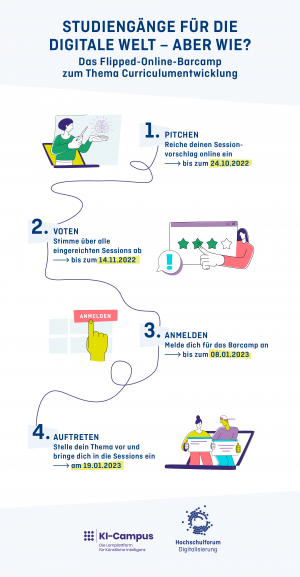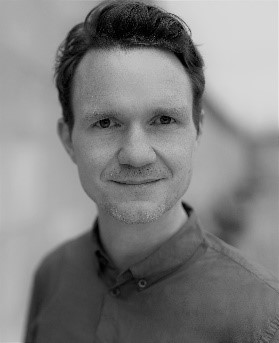Curriculum-Barcamp “Study programs for the digital world” on 19.01.2023
Digitization and AI topics have been driven forward in teaching and studying for many years. However, the changes to existing and construction of new degree programs and the new competency profiles that accompany them pose many questions for those involved in the departments, faculties and institutes. Against this background, the Hochschulforum Digitalisierung (HFD) and the AI Campus invite you to a Curriculum-Barcamp, where you can share insights from your own practice with colleagues from other universities.
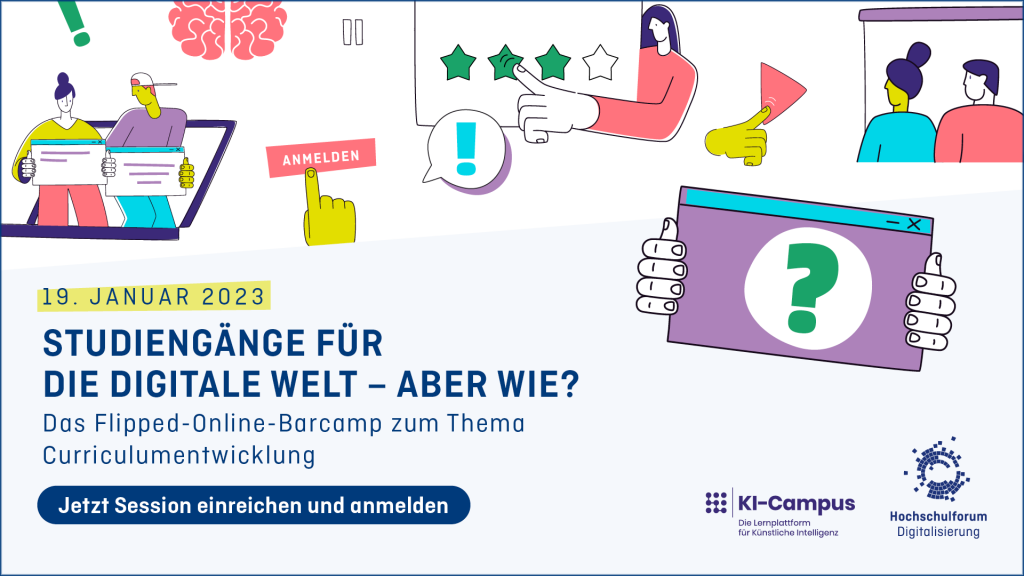
All information around registration and session submission can be found here:
Why is the topic of curriculum development currently on the agenda of many universities?
What are the goals of the Curriculum Barcamp?
Who is the Curriculum Barcamp aimed at?
How does the Curriculum Barcamp work?
What are the main topics of the curriculum barcamp?
Why is the topic of curriculum development currently on the agenda of many universities?
The German Council of Science and Humanities (Wissenschaftsrat, WR) has dealt with the changed requirements that digitization places on teaching and studying and on July 8. 2022 corresponding recommendations published. One recommendation to universities is that students should be able to acquire competencies for the digital world during their studies and be able to apply digital technologies themselves.
Universities have a responsibility to enable their students to develop competencies that not only include the confident use of digital technologies, but also the ability to assess the potential and impact of digitization in society and the world of work, to actively and reflexively shape digitization processes, and to keep pace overall with the rapid pace of change.
But how can digital and AI competencies be integrated into degree programs in a sustainable manner? Existing and new university curricula must be scrutinized to determine the extent to which they provide adequate answers to the competence requirements described and where individual modules, courses of study and universities as a whole need to be changed. In some cases, they face major challenges here, e.g. with regard to a systematic or methodical approach, support structures or the participation of all necessary stakeholder groups.
Many initiatives have been dedicated to curriculum development in recent years (e.g. Hochschulforum Digitalisierung, Stifterverband) and yet cross-university knowledge transfer between the players is too rare.
A flipped online barcamp is planned to accelerate the transfer of good practice in the community. Positive developments should be taken up and promoted in order to consistently drive forward the digital transformation in universities and to shape it in a proactive and high-class manner (see also Wissenschaftsrat, 2022: 6). In the context of the curriculum barcamp, the term curriculum development is used synonymously with program design, similar to the way it is used in higher education.
What are the goals of the Curriculum Barcamp?
The Curriculum Barcamp “Courses of Study for the Digital World” is a format that focuses on the participants and their topics. There is a lot of knowledge and experience among colleagues and this barcamp aims to create cross-university transfer and exchange opportunities where:
- illustrate the good practices of curriculum development.
- Challenges and solutions in the transformation of curricula become apparent.
- A shared knowledge base is created around curriculum development topics.
Who is the Curriculum Barcamp aimed at?
- University actors involved in the (further) development of curricula from different perspectives, e.g.:
- University and faculty management, staff positions, units (strategic perspective)
- Teachers, students, program directors (subject perspective)
- University didactics, quality development (methodological perspective)
How does the Curriculum Barcamp work?
A barcamp is often referred to as an unconference. In contrast to a conference, the focus here is not on the presentation of final results, but on the exchange, the questions and the joint work. The one-day online event will be held on Jan. 19, 2023. The preparation of the curriculum barcamp is done in four steps:
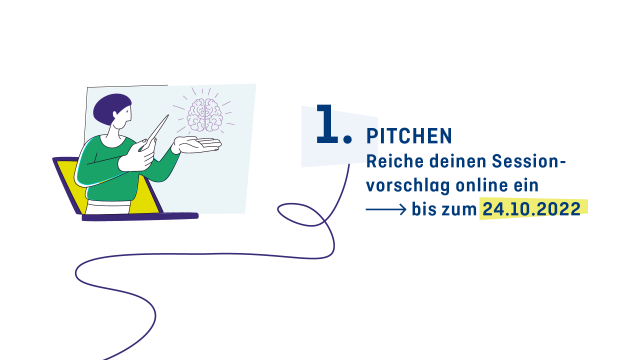
Would you like to exchange information directly and easily with colleagues from other universities? Do you have a project idea that you would like to discuss with the community before implementing it? All interested parties are explicitly invited to contribute with their own topics. In the Flipped Online Barcamp variant, this is done with time to spare. This allows the hosts to prepare the program (the so-called session plan) in advance and the participants to get acquainted with the program in advance. This way, the full duration of the bar camp can be used for mutual exchange and joint work.
Submit your session proposal, e.g. as a video recording, as an audio contribution or as a textual contribution. The length should not exceed 90 seconds or 1,000 characters.
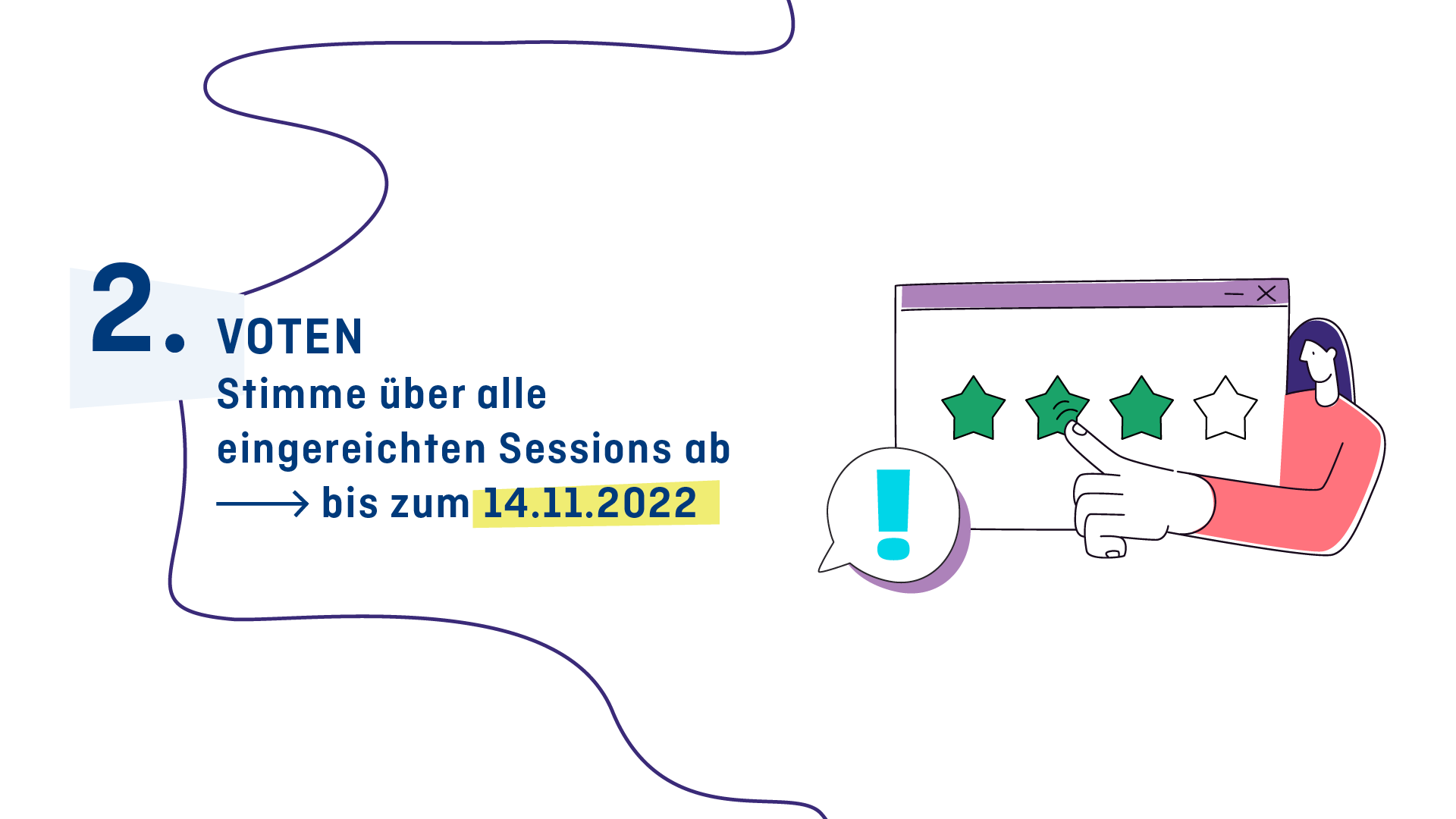
The ideas submitted will be presented online. This way you can view all pitches and vote on your favorites. The Curriculum Barcamp thrives on the participation of the participants, as they decide on the program. The pitches with the highest scores will move on to the final session schedule. Participation in a session is open to all participants, and active involvement is strongly encouraged. Click here to go to the voting.
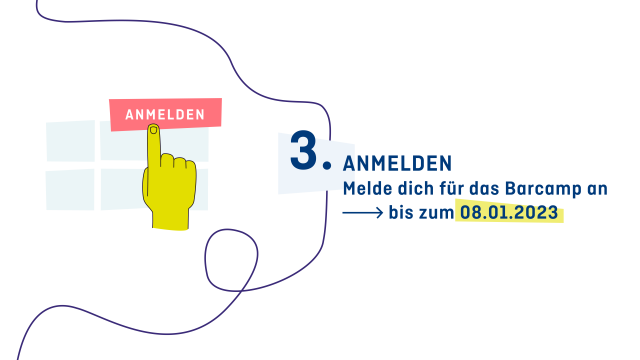
Registration is required to attend. Complete the registration form by 08/01/2023 to secure your spot in the Curriculum Barcamp.
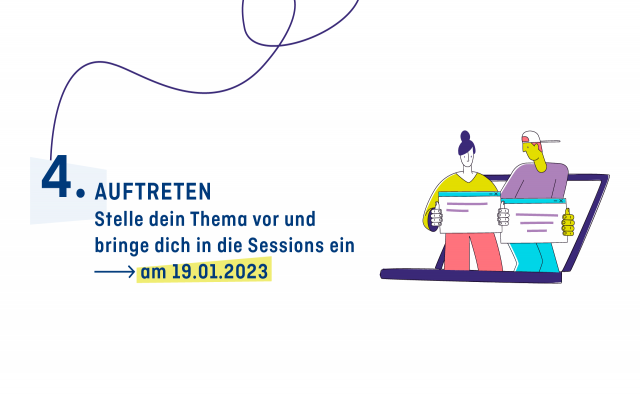
At the Barcamp itself, on 19.01.2023, the session hosts will present their ideas and topics from 09:30 to 16:00 and thus start the exchange and discussion process. The sessions last one hour each. Whether you are leading your own session or attending as a participant:in, we look forward to your input!
What are the main topics of the curriculum barcamp?
At the Curriculum-Barcamp, you will have the opportunity to present application examples from your own practice, to discuss them or to further develop them together with the community. Feel free to use the following questions as a guide when submitting a pitch.
Strategy and structure for curricular transformation
- How can the (further) development of curricula be strategically anchored (e.g., university development plans, digitization strategy, or quality management)?
- What structures and tools are needed to initiate faculty engagement with curricular change? (e.g. model projects, incentive systems, funding models, support facilities)
- What formats/methods/approaches have proven effective to further develop the different levels of the curriculum (e.g., course content, teaching and learning methods, forms of assessment)?
- How are teachers, university and faculty leaders qualified for curriculum development?
- Which requirements result from the curricular changes and which effects do these have on future-oriented e.g. study organization, learning architectures?
Formalized study documents (e.g. study regulations, examination regulations, module handbook)
- How should study documents be designed to continuously incorporate relevant innovations?
- What processes are defined within university administration and must be considered during curriculum development?
- What influence do digitization and AI topics have on a subject and at what levels does a transformation take place (e.g., changed teaching content, teaching and learning methods, forms of examination, realignment of the course of study). How is this reflected in formalized study documents?
Curriculum development process
- How are the required competencies (e.g. digital competencies, AI competencies) of future university graduates integrated into the curricula? Is it a matter of careful adjustments in compulsory modules, well thought-out supplementary elective areas, or rather (complete) redesigns of curricula?
- What is the significance of competence/framework models for the transformation of curricula and how do they find their way into internal university processes?
- Which participatory communication formats established for a “lived curriculum” and for teaching development (e.g. curriculum workshops) have proven successful?
- How can the experiences of the Corona semesters be worked through and what has been proven be sustainably curricularly secured (practices)?
- What role does quality management play in curricular development?
- How can the issue of digitizing curricula be linked to the integration of other strategic issues, such as sustainability and internationalization?
How do I submit a session proposal (pitch)?
You can submit a pitch for a Barcamp session until 10/24/2022. The submission is also your registration for the Curriculum Barcamp. Additional registration is not provided.
- Call the online registration form on.
- Fill in the form fields. Question for you: In what format would you like to submit your session pitch? The choices are: Video recording, audio or text contribution.
- Submit the form.
Produce a session pitch
- Video recording (90 seconds)
Upload your video recording to a video platform of your choice (e.g., university internal video platform, YouTube) and share with us a link to the video.Upload your video recording to a file sharing service / cloud service of your choice (e.g., Microsoft Sharepoint, Sciebo) and share with us a link to the file. Please make sure that the compression is appropriate – the size of the file should not exceed 150 MB.
- Audio clip (90 seconds)
Upload your audio to a file sharing service/cloud provider of your choice (e.g. Microsoft Sharepoint, Sciebo, etc.) and share with us the link to the file. Alternatively, send your audio file by email to: qualifizierung@stifterverband.de
- Text contribution (max. 1,000 characters)
Insert your textual contribution directly into the text field in the registration form. The length should not exceed 1,000 characters (including spaces).
We would like to give you a suggestion for the pitch process. You are very welcome to follow them or implement your own idea:
- Introduce yourself briefly at the beginning.(Example: Hello, my name is … and I work at …) .
- For example, describe the topic, the challenge, theexample (Example: From the perspective of …, I bring in the topic …. I am sure that it could also be interesting for …).
- Show your solution or question.(Example: We have worked out the following solutions/ideas and I would like to exchange ideas with you. Nice to meet you at the Curriculum-Barcamp!)
Where do I register for the Curriculum Barcamp?
Participation in the Curriculum Barcamp is free of charge. Registration for participation in the Curriculum Barcamp is now open until 08.01.2023.
Overview: Dates and procedure
